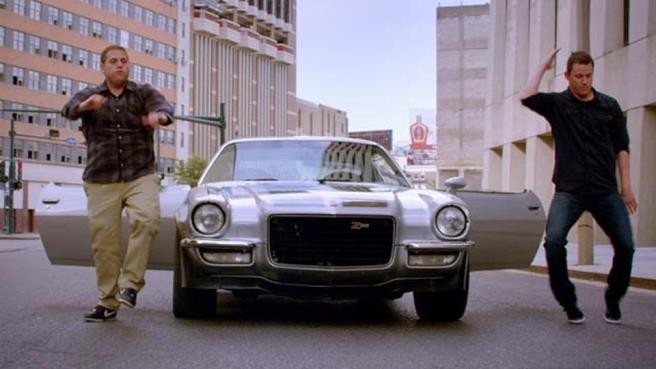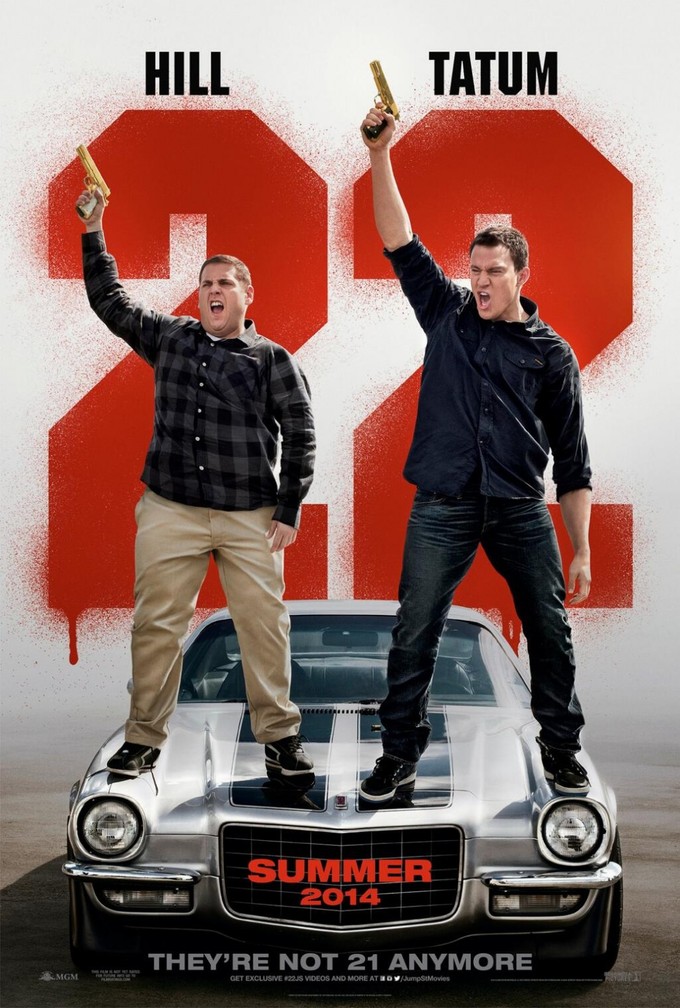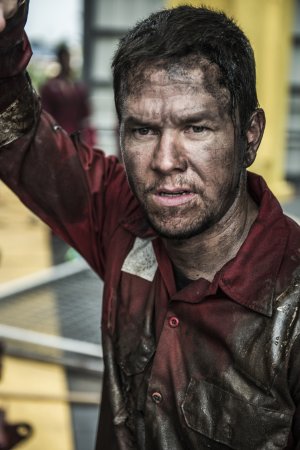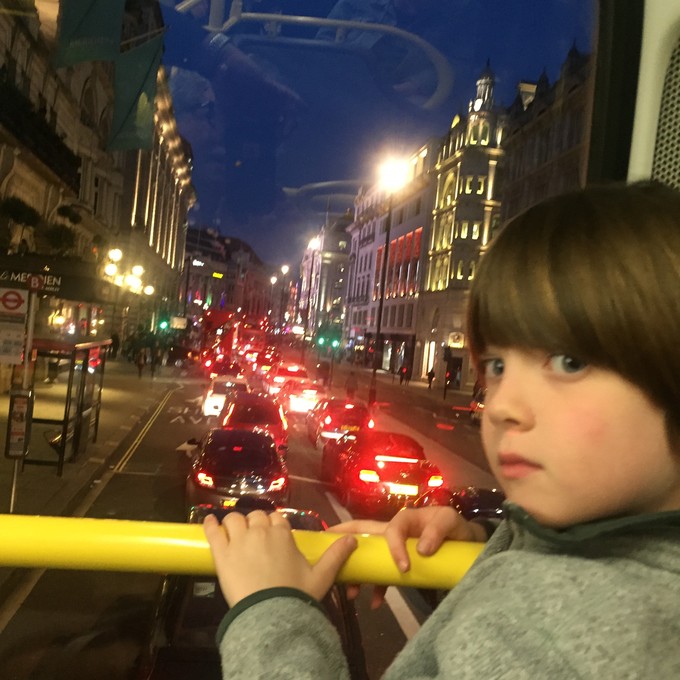Hello ladies and gentlemen, your pal Muldoon here with another interesting dip behind the curtain, a glimpse into the incredible work that takes place before our favorite films hit the silver screen. I've been lucky enough to speak with a handful of talented individuals here on MEET THE CREW about their individual roles behind the camera, from Producers to Sound Designers to Cinematographers, yet I'm still hungry to know more. I'm still insanely excited to chat with all sorts of interesting people with different responsibilites and duties on a crew. Each person's insights have helped showcase a different piece of the pie, a unique perspective that I rarely see represented on film sites. Today we get a special glimpse into a crucial department, one that typically isn't as romanticized as much as the others. Today we learn about the Transportation department from a legend in the field, a Mr. Welch Lambeth. A quick glimpse at his IMDB page showcases just a fraction of the man's career, so it's an honest treat to hear his stories and advice in the Q&A below. As always, MEET THE CREW is only interesting when there are interesting answers and thankfully Mr. Lambeth has taken the time to ensure just that, so regardless of what you think you're in for below - what I can verify is it's a great read thanks to Lambeth. I'd also like to send a giant thank you to UPM Will Greenfield for introducing me to Mr. Lambeth and for his continued support of this column after being featured here so many months ago. So let's get to know Welch Lambeth and catch a little insight into the world of Transportation!
WELCH LAMBETH - TRANSPORTATION COORDINATOR

What exactly are the responsibilities of a Transportation Coordinator and when are you brought on to a given project?
The responsibilities are numerous and logistically oriented. They include securing all rolling stock (trucks, vans, ATV's etc.), hiring a driver "captain" to run the set on a daily basis, hiring drivers and dispatchers and keeping up with it all. All movies are different (makes it fun!) with different needs including scouting locations with the locations department for equipment staging. Most movies move around a lot. We move equipment, actors, crew and extras depending on the movie. A demanding part of the job is dealing with prop cars or "picture cars" as we refer to them. But picture cars also give the added element of having creative input to the movie itself. Lots of times we will even have a picture car coordinator and picture car department depending on the complexity of the project. Can you imagine the size (labor and budget) of the Fast and Furious movies?
There again, each movie is different and have different requirements. For example, we filmed 22 JUMP STREET in New Orleans and Puerto Rico which brings on the extra responsibility of working with the production coordinator and shipping broker to get your equipment shipped to an island a 1000 miles away from Florida and doubling up on equipment to cover the 3 or 4 days that it takes to travel that far by ship.
Also, in the last decade, Department of Transportation requirements have become so stringent with drug testing, background screening and monitoring driver log books that a DOT office person is now a normal position in the Transportation Department, where it used to be a luxury. As far as when I start on a project, anywhere from 4 weeks to six months before principle photography.
While I realize every show is different, can you kindly walk me through a typical day in your world?
Fortunately there is no typical day in my world! The most intense stage of my job is the pre-production or planning stage, doing budgets, scouting, trying to figure out the best equipment at the best price for that particular job and dealing with picture cars if I don't have a department to do so. Once shooting begins, I deal more with putting out fires and planning one to five days out for additional requirements and there are always bills to approve and paper work to generate.
Who do you typically answer to on a gig and which departments do you coordinate the most with?
My two immediate bosses are the production Manager and line producers. I rely heavily on the locations department to provide ample crew and equipment parking and constantly nudge them to find support areas as close as possible to the filming set where everybody's job becomes easier. The transportation department actually works with every department on some level, some more than others.
What’s the most enjoyable part of your job? On the flipside, what are some duties you have to deal with, but folks at home watching your work might not necessarily be privy to?
The most enjoyable part of working in film is the people you meet, I have met and become friends and co workers with some of the smartest and interesting people on earth. Will Greenfield, the production Manager turned line producer you recently featured is a prime example, what a great guy, great character, great friend. He is a walking film encyclopedia, a wonderful film buff with great stories.
You’re essentially in command of a small army of drivers. Can you give me an idea of how many individuals you’ll have on a given shoot and what you rely on them to do? For example, you’ve done some big films like 21 JUMP STREET or its sequel, how big was your crew? What’s show required the least amount of drivers and what was that like?
Typically a film like 22 JUMP STREET will have 35-45 drivers and an additional 20 or so on 2nd Unit. I did a movie in the mountains of North Carolina in 1999 called HAPPY CAMPERS in one location at a summer camp. We probably had 10 drivers, most of the equipment was staged out of cabins instead of trucks. It was a lot of fun in a beautiful state, in a beautiful setting.

With so many projects under your belt, can you shed some light on possibly three films your most proud of? By proud, I mean they could have been incredibly difficult, but you and your team pulled through, or it could be a movie that went incredibly smoothly and you thoroughly enjoyed watching when it hit screens?
RAY was a great experience, a difficult shoot with decades of periods in many locations. To give you an idea of its complexity, most production meetings with department heads last about 3 hours, the production meeting for RAY was two days!! I'm proud of that movie and became friends with the director Taylor Hackford and have since worked with him on the movie PARKER. He is a wonderful person. I really enjoyed the JUNGLE BOOK. We did all the animal work in Tennesee and Fripp Island, SC. Working with animals is great!. Where else can you ride an elephant and a camel and hug a lion? I just finished a Mark Wahlberg film about the BP Deepwater Horizon disaster. It is my biggest budgeted film to date and an important movie for this environmentally unsound world that we now inhabit.

I noticed you were an associate producer on Stephen King’s THINNER. How did you fall into that role and what was that experience like?
I went up to Maine very early in prep and the producer really liked me and asked me be the associate producer. I suppose he saw my potential to manage people and resolve problems effectively at that level. It was an awesome and educational experience.
Do you have any fun stories from ERNEST SAVES CHRISTMAS? Purely selfish question here as I grew up on Ernest P. Worrell.
Yes, we shot that movie in Orlando and were based at Epcot and housed at the Contemporary Hotel on Disney property. Hanging out Jim Varney was a great experience, what a true gentleman, very funny and truly missed. I will never forget being on set and his delivery of the "pork's my meat" line. Very funny. He was a Shakespearean trained actor.
What lead you to where you are right now? Can you give us a glimpse at what brought you to a position you’ve held for over 25 years? Were there any people along the way who perhaps gave you a shot before you had so many credits to your belt? Folks who believed in you enough to give you a chance to prove yourself?
I was in school at the University of North Carolina when I heard of a Dino De Laurentiis film that was going to shoot that summer in Wilmington, NC called CAT'S EYE. I drove my motorcycle to Wilmington trying to secure a job at least 5 times. The last time I informed them that I was not leaving the studio until I was officially hired in any capacity. I left that day with a driving job. After driving James Woods that first day of filming, I was hooked forever and never looked back! There are so many people that gave me opportunities, too many to list. They know who they are, I'm grateful to each and everyone of them.
What are you currently working on?
Recently finished the above mentioned big Peter Berg / Mark Walberg picture about the 2010 BP Deepwater Horizon disaster, currently filming a Rob Reiner movie called LBJ with Woody Harrelson in the lead role, shooting in New Orleans and one day in Dealy Plaza, Dallas.
Do you have any advice for filmmakers out there in terms of efficiently running a production? Provided you’ve worked on so many projects, you’ve seen what works and what doesn’t. I can only imagine you’ve been on shows where a producer thought they knew more about Transpo than you, and things went wrong. When working with transportation, what are some key things to remember that will ensure a smooth production from where you stand?
Some producers understand the daily grind of transportation, others don't. My theory on running a smooth transportation department is one that operates like it is not even there, just an efficient, well-oiled machine that causes no disruptions or delays. I strive to service the movie the way it is designed to be serviced. My advice for budding filmmakers is to surround yourself with honest, hardworking, competent crew members that are loyal to you. Also, hire the right people for the right size job. Don't hire Bob Richardson to shoot DALLAS BUYERS CLUB! I actually loved working on DALLAS BUYERS CLUB and loved the movie itself. I'm also Bob Richardson's biggest fan, what a genius DP.
Do you have any advice for people out there interested in working in the Transportation Department?
Yes, work in camera.
Since you did not ask me the "coolest" thing that has come out of my film experience, I'm going to tell you: about a month ago, I was able to arrange to take my six year old son Oliver to the London set of Star Wars:Rogue One. We also visited the sound stages and all departments at Pinewood Studios. He saw R2-D2, shot Luke Skywalker's gun, put on Darth Vader's helmet, stood beside Chewbacca, flew a yet to be seen star ship into hyper space on stage and many other things we can't tell you- we signed a NDA! Ain't that COOL!! Thanks!

There we have it ladies and gents, a brief glimpse into the world of a Transportation Coordinator. I can't begin to imagine the amount of time, energy, and skill involved in one of the larger productions. Just think of all that has to go into it... Thanks again to Welch for taking the time to chat with me. It sounds like he loves what he does and clearly the producers out there seem to enjoy working with him. I hope you folks enjoyed Mr. Lambeth's answers as much as I did!
If you work in film or television and feel like shedding some light on what exactly your position entails, then please feel free to shoot me an email with the subject line "MTC - (Your Name) - (Your Position)." I'm not here to get scoops or dirt on anyone, simply here to educate and ask for advice to any of our filmmakers in the audience.
If you folks are interested in finding out what other positions on a film are like, then check out any of the links below:
Robby Baumgartner - Director of Photography
Thomas S. Hammock - Production Designer
Seamus Tierney - Cinematographer
Brian McQuery - 1st Assistant Director
Shannon Shea - Creature/VFX Supervisor
Christopher A. Nelson - Special Makeup Effects Artist
William Greenfield - Unit Production Manager
Jeff Errico - Storyboard Artist
Monique Champagne - Set Decorator
Arthur Tarnowski - Film Editor
Justin Lubin - Stills Photographer
Jason Bonnell - Location Manager
- Mike McCutchen
"Muldoon"
Mike@aintitcool.com
![]()
